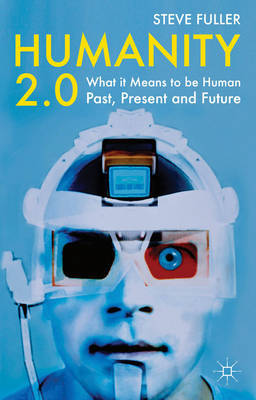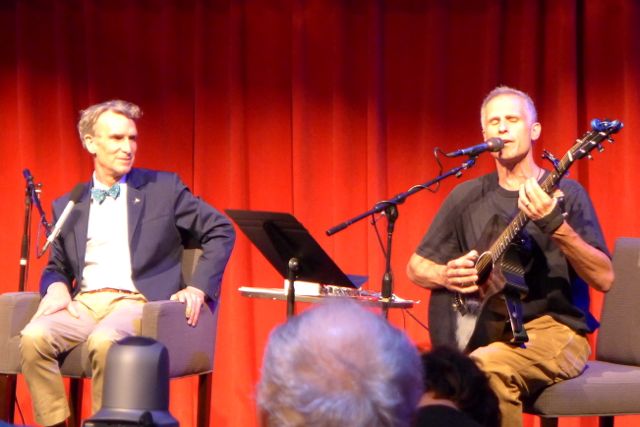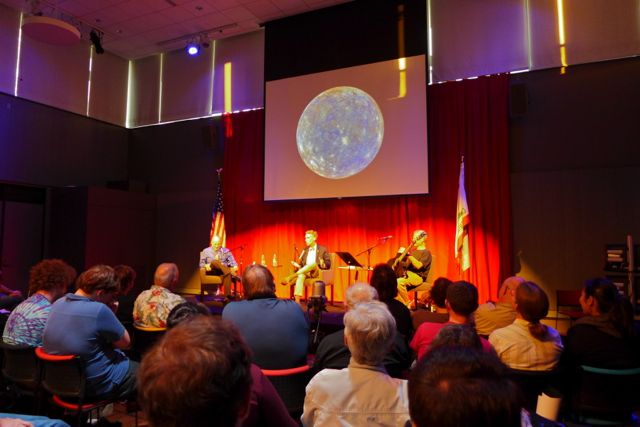 Paperback: 280 pages
Paperback: 280 pages
Publisher: Palgrave Macmillan (6 Oct 2011)
Language English
ISBN-10: 0230233430
ISBN-13: 978-0230233430
Product Dimensions: 21.2 x 13.8 x 2.2 cm
Imagine a future world where technology lets us control our own destiny, enhance our physical and mental performance, extend our lives – perhaps indefinately. How will we come to see ourselves as human beings? What will it mean to be human? And how can we manage it all for the common good.
This is the world of Humanity 2.0 , and the subject of a new book from Warwick University Professor of Sociology Steve Fuller.
, and the subject of a new book from Warwick University Professor of Sociology Steve Fuller.
I have to say up front this is the first of Fuller’s books I’ve read through cover to cover, and frankly it was quite a challenge. Whether it’s the sociologist’s writing style or the somewhat discordant mix of practical and theological content, extracting what Fuller is really trying to say, his thesis if you like, was an uphill job. To his credit, Fuller has made a series of six short videos summarising his content, and which I’ve added to the end of this post. They came too late for me, but you’re advised to watch them before reading the book.
That said, I want here to give an overview of the content and critique a few areas particularly where I have issues.
Fuller wants to create egalitarian policy for the development and implementation of transhumanist technologies, and justify sociology’s seat at the multi-disciplinary table that will deliver it. It’s the laudable focus of his Chapter 3.
But his broader agenda is to dethrone what he sees as a prevailing hegemony of Neo-Darwinism (essentially what Darwin knew plus our knowledge of molecular genetics) and get an alternative variant of intelligent design (I.D.) taught in school science classes; p180:
…the most controversial aspect of my position, namely, that the active promotion of a certain broadly Abrahamic theological perspective is necessary to motivate students to undertake lives in science and to support those who decide to do so.
He’s accordingly raised his game by developing a brand of I.D. better suited to the task as he sees it; p177:
As a true social constructivist, I see myself as one of the constructors of intelligent design theory. I am not simply remarking from the sidelines about what others have done or are doing, as a historian or journalist might. Rather I am making a front-line contribution to defining the theory’s identity.
although it’s not clear how much of this is driven from heart-felt conviction. Variously describing himself as a Secular Humanist, Humanist, and now Transhumanist, in this Guardian interview from 2006 he appeared not to favour I.D., but felt it deserved a “fair run for its money”; apparently backing any horse, however lame, that will run against Neo-Darwinism.
Fuller’s appeal to I.D. in Humanity 2.0 is itself ambiguous: he uses the term variously in contexts related to a recognisable deity, p187:
I have been quite open about identifying the ‘intelligence’ of intelligent design with the mind of a version of the Abrahamic God into which the scientist aspires to enter by virtue of having been created in imago dei.
then more in relation to nature, as in his discussion around civic religion, p182:
But what remains specifically ‘religious’ about ‘civic religion’? Two aspects: (1) Science’s findings are framed in terms of the larger significance of things, nature’s ‘intelligent design’, if you will. (2) Science’s pursuit requires a particular species of faith – namely, perseverence in the face of adversity – given science’s rather contestable balance sheet in registering goods and harms….
The former quote is consistent with Fuller’s broader counter to Neo-Darwinism, my reading of which can be summed up as (i.e. my words):
Those committed to a Neo-Darwinist world view are aligned with a historical tradition that decrees we can never know a god who is different from us in kind. Such people are uninterested in science or technology beyond that required for a continued existence with their fellow animals in a sustainably snug microcosm. They likewise have no interest in the science and technology of a transhumanist agenda.
It’s never quite clear whether Fuller is projecting God’s image onto man, or man onto God – a model more in line with his version of secular humanism as described in the aforementioned Guardian interview: “human beings at the centre of reality, creating God in their image and likeness” and “taking control of evolution”. With I.D. tied up with hardcore Creationism in the US, however inappropriately from Fuller’s perspective (he doesn’t support Creationism), some clarification would be helpful.
Coming to structure and content. The first two chapters major on the idea of human ‘distinctiveness’, or that which makes us uniquely human, discussed in the frame of race and religion aligned with various biological and theological perspectives from the past, present, and future. Chapter two specifically defines world views broadly corresponding to ‘naturalistic’ Neo-Darwinism, and a divinely-inspired alternative.
Where naturalistics see themselves “embedded” at one with nature, animals like any others emerging from a process of evolution with natural selection, the divinely-inspired are special: fundamentally separate and above animals, they recognise God because he is an intelligently-designing technician as they are, intent on preserving the essence of their specialness – their humanity. Traditionally they’d look to do that in soul form, but now have an eye to the alternatives future transhumanist technologies might offer. All a bit sci-fi for now, but think of uploading thoughts, memories, consciousness to a microchip, robot, clone, hive-mind, or whatever.
Chapter three’s more grounded ‘Policy Blueprint’ centres around the so-called Converging Technologies Agenda (CTA) for the delivery, management, and regulation of technologies for human enhancement, or transhumanism; so: Nanotechnology, Information Technology, Biotechnology and Cognitive Sciences working together under Fuller’s favoured policy regime of ‘anticipatory governance’.
Although more a check-list than a roadmap – I’m still uncertain of the next steps, there’s interesting discussion here on topics like the substantive PR task of selling transhumanist ideas to a CT-sceptical public (think nanotech), use of IT-style early-end-user-involvement to progress it, and the role for media and science communication.
We can expect issues around personal risk and willingness to participate in enhancement technology trials. Fuller points to the danger of CT perceived as hollow rebranding (again, echos of Nanotech’s relation to chemistry), and questions around standards and norms for developments and applications: e.g. would we take a nanotech or medical lead in a medical situation using that technology? There are also emerging and diverse management philosophies to accommodate or rationalise; so the USA taking a more ROI-focused, proactionary, human performance emphasis, hands off approach; while Europe favours a precautionary, state-controlling, human welfare emphasis.
For Fuller, sociology’s egalitarian pedigree, manifest in the Welfare State, qualifies its latent contribution. And with funding for CT industries biased to the private sector, it looks like the common man is going to need a champion. No centrally driven, government funded, benevolent upgrade for the species this. The portents are rather for increasing societal inequality and differentiation: a position Fuller contrasts with the public-focused ‘common good’ research environment of the Cold War. Cynically, and outside any higher moral ambition, CTA could simply serve as a ‘techno-fix’ for over-population or other pressures on the Welfare State, forcing us to work harder and longer for our deferred pensions – no thanks, or getting us off the hook of our ecological responsibilities.
It’s all scary stuff. When we’re popping cogno-enhancers over the cornflakes, and little Jimmy’s off to college by the grace of his cerebral implant, and your investment-banker neighbours have signed up for the latest ‘life-doubler’ programme; one wonders what will qualify us to live, never mind defining our humanity. That’s me fantasising, but drug-based cogno-enhancement is here, and Fuller’s born “always already disabled” scenario could happen, hitting hardest the under-priviledged and those who don’t want, or can’t afford, the latest upgrades.
Chapters four and five are a return to theology and full-on Neo-Darwinist bashing, which is a shame given I suspect there is so much more to say in the vein of Chapter three.
Various off-shoots and mini-theses sprout off the core agenda, like discussion on the debt owed to religion by Science and both the Secularist and Enlightenment movements for their existence, albeit with a concession the influence has waned:
..even if it is true that all supernaturally motivated scientific insights are eventually absorbed into the naturalistic worldview, it does not follow either that the supernaturalism was unnecessary or that naturalism is the final word.
Newton appears as the quintessential religiously motivated scientist, which is fair enough provided we remember back then he had only religion to explain anything. It’s interesting to ask what sort of science a modern-day Newton might pursue. Would he be one of Fuller’s Neo-Darwinists for whom ‘God differs in kind’, causing him to eschew all impractical science like cosmology, particle physics and String Theory?
I do struggle with this idea that scientists can’t, won’t, or won’t want to do fancy science unless they turn all ‘intelligent design’. It’s saying we have to be designed in order to aspire to knowledge or value truth. Or that because Neo-Darwinists wouldn’t recognise God if they found him curled up in the 10th dimension, they wouldn’t bother with String Theory.
Yet scientists, many of whom are Neo-Darwinists, do that kind of science – big time! So what is it – force of habit? Well why not? Maybe we enjoy all that Brian Cox ‘wonders’ stuff because of an evolutionary misfire: a historic brain artifact associated with some evolved inquisitive tendency for practical survival. We do fancy science, we make a discovery, we revel in our dopamine spike, we do more fancy science. Simples. That’s why scientists are such fun folk to have around.
Fuller might see that as a reductionist, even nihilistic, worldview. He’s said that when Darwin killed God he also killed man, or the only part of man that matters – his humanity. And this is why despite presenting his arguments in a frame of reasoned academic detachment, I’m coming round to thinking Fuller’s propositions are at end religious plain and simple – even if the religion is his own science-flavoured brand. He ‘feels’ there is no humanity without god, so we must have god.
Conclusion
If you’re not used to reading sociology texts, which I’m not, Humanity 2.0 is hard going.
It should be clear by now that Humanity 2.0’s high-tech cover art conceals a heavy theological edge with pervasive references to intelligent design in the context of an anti-Neo-Darwinism agenda. And that’s a shame because it distracts from the more diverse, and frankly more interesting, material also there in plenty for those with open minds.
There’s nothing wrong with theological arguments per se, but mixing rational policy debate with what many will see as off-the-wall, politically charged, I.D. rhetoric is a mistake that’s likely to destructively provoke the very individuals and organisations Fuller should be onboarding to secure sociology’s role in the transhumanist agenda.
Other reviews of Humanity 2.o
Angela Saini, New Humanist
Julian Baggini at the FT
BioCentre 31/10/11
Steven Poole, Guardian 18/11/11
THE Kristrún Gunnarsdóttir 1/3/12




